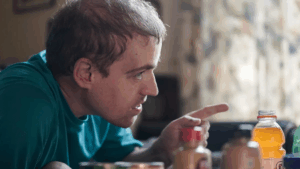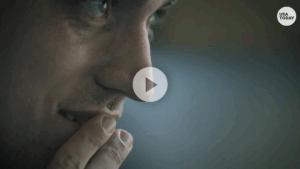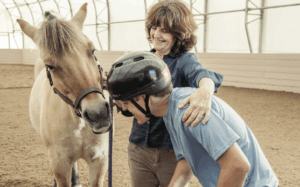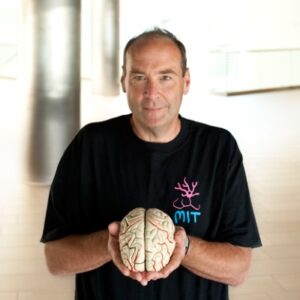FRAXA Research Foundation in the News
Read current and past news articles about FRAXA Research Foundation and our progress on finding effective treatments and ultimately a cure for Fragile X syndrome.
NPR Spotlights Zatolmilast: A Potential Breakthrough for Fragile X Syndrome
NPR spotlights zatolmilast, a promising drug offering new hope for individuals with Fragile X syndrome. Families report life-changing improvements in anxiety, communication, and independence.
Forbes, “Clinical Trials Expand For AI-Designed Drug To Treat Fragile X Syndrome”
British startup Healx has secured FDA approval for a phase 2a clinical trial of an AI-discovered compound that could help manage the symptoms of the genetic disorder Fragile X syndrome. The start of the trial marks another milestone in the use of artificial intelligence to help find new applications for existing drugs by mining patient records and research databases.
USA Today, “Fragile X treatment: Decades later, progress in rare genetic condition”
In recent weeks, USA Today spent days with FRAXA co-founders Dr. Mike Tranfaglia and Katie Clapp, and their son Andy. Andy lives with Fragile X syndrome and is the focus of a segment of USA Today’s occasional series that explores how scientific advances are transforming care for rare diseases.
USA Today Video, “Living with Fragile X Syndrome: ‘He is growing… it’s just really slow'”
Born with Fragile X Syndrome, a rare developmental disorder, Andy Tranfaglia, thrives with the help of his parents and a community of supporters.
NPR Short Wave, “A Fragile X Treatment May Be On The Horizon”
Katie Clapp and Michael Tranfaglia’s son was born with a genetic disorder that affects brain development. It makes it hard to learn language and basic daily tasks and often is accompanied by a host of other disorders. To help find a cure, they started a foundation and raised research money. After se…
Brain & Life, “A Mom Leads Efforts to Cure Fragile X Syndrome for Her Son and Others”
We haven’t found a cure yet, but we’ve moved closer to understanding fragile X syndrome and identifying treatment targets. We hope this will help our son and other families dealing with this life-changing condition.
The New York Times, “Medical Charities Once Advised on Coping With a Disease. Now They Try to Cure It”
Propelled by genome sequencing and social media, thousands of charities have sprung up to finance, coordinate and oversee research for cures. Katie Clapp and her son, Andy, who has Fragile X, a disease that causes intellectual disability, with a therapy horse at Gateway Farm in Merrimac, Mass. Ms. Clapp helped form a group that has spent millions on research for a cure.
Boston Globe, “Playing a part in finding cure for Fragile X”
Fragile X is rare and not as highly publicized as many other better-known genetic diseases that attract media interest and generate richer revenue streams of giving. The world of the ailing doesn’t prioritize. There is no Find Help 101 manual for funding charities or what makes the public wake up one day and pour out its heart, empty its wallet, join a bike-a-thon for its cure.
NPR, “A Family’s Long Search For Fragile X Drug Finds Frustration, Hope”
There is no effective treatment for the rare genetic disorder Fragile X syndrome, so two parents created a foundation to fund research. But they found there’s no easy road to a cure. For a few weeks last year, Michael Tranfaglia and Katie Clapp saw a remarkable change in their son, Andy…
NPR, “Progress Made On Drug For Autism Symptoms”
An experimental drug that helps people who have Fragile X syndrome is raising hopes of a treatment for autism. The drug, called arbaclofen, made people with Fragile X syndrome less likely to avoid social interactions, according to a newly published study. Researchers suspect it might do the same for people with autism.










